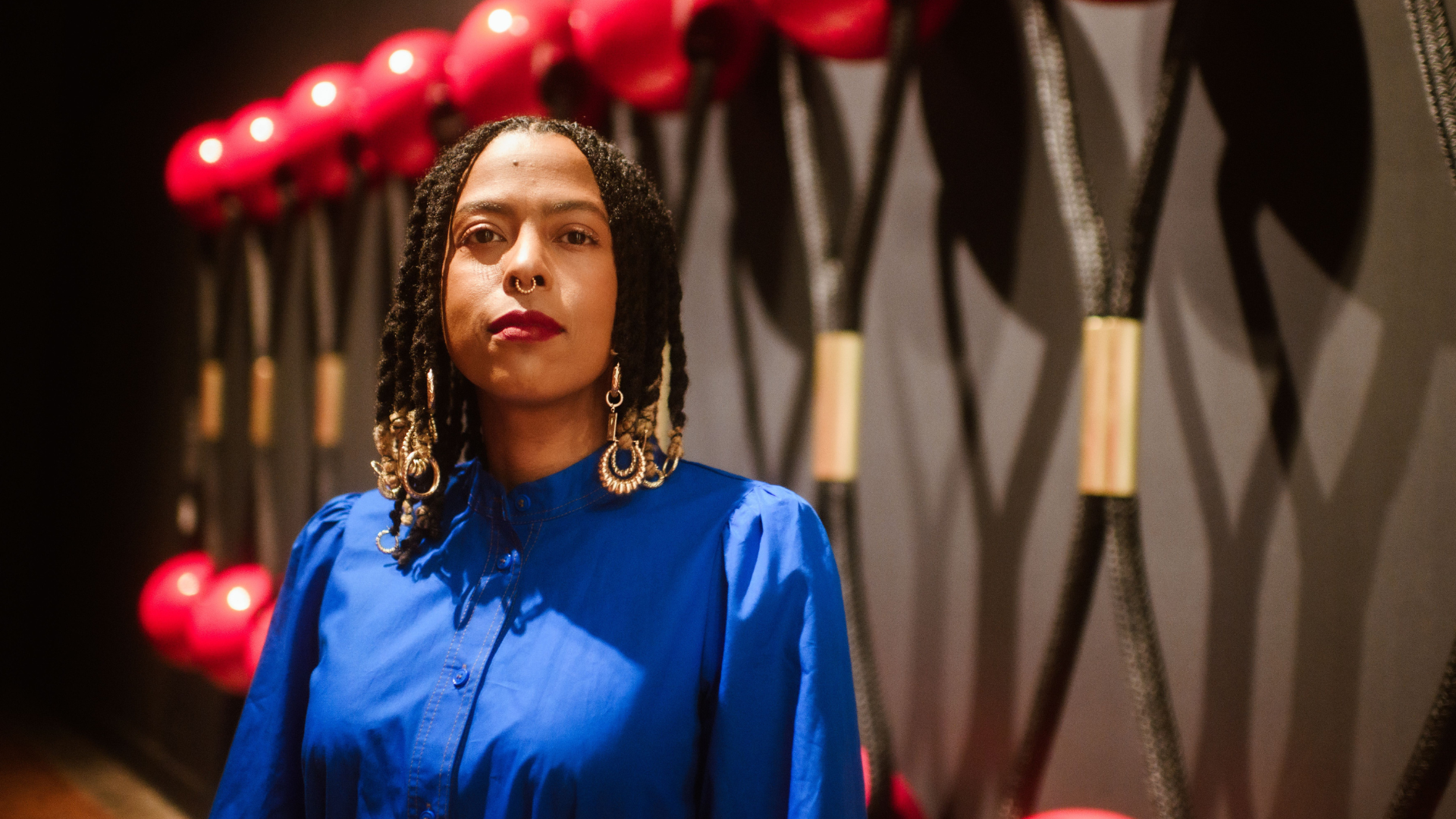
Upon entering a room of Tiff Massey’s new exhibit at the Detroit Institute of Arts, you’re immediately enraptured. “Tiff Massey: 7 Mile + Livernois” by the Detroit-bred artist is an awe-inspiring experience. One artwork is comprised of a wall-to-floor canvas donning Kankelon hair of various shades of green. Massey elaborately braided and twisted the hair into sculptures and adorned them with beads. This work, titled, “I’ve Got Bundles and I Got Flewed Out (Green)” pays homage to her hometown’s hair salons. But it also delves into the monicker synonymous with Detroit, to many it’s known as “the Black hair capital of the world.”
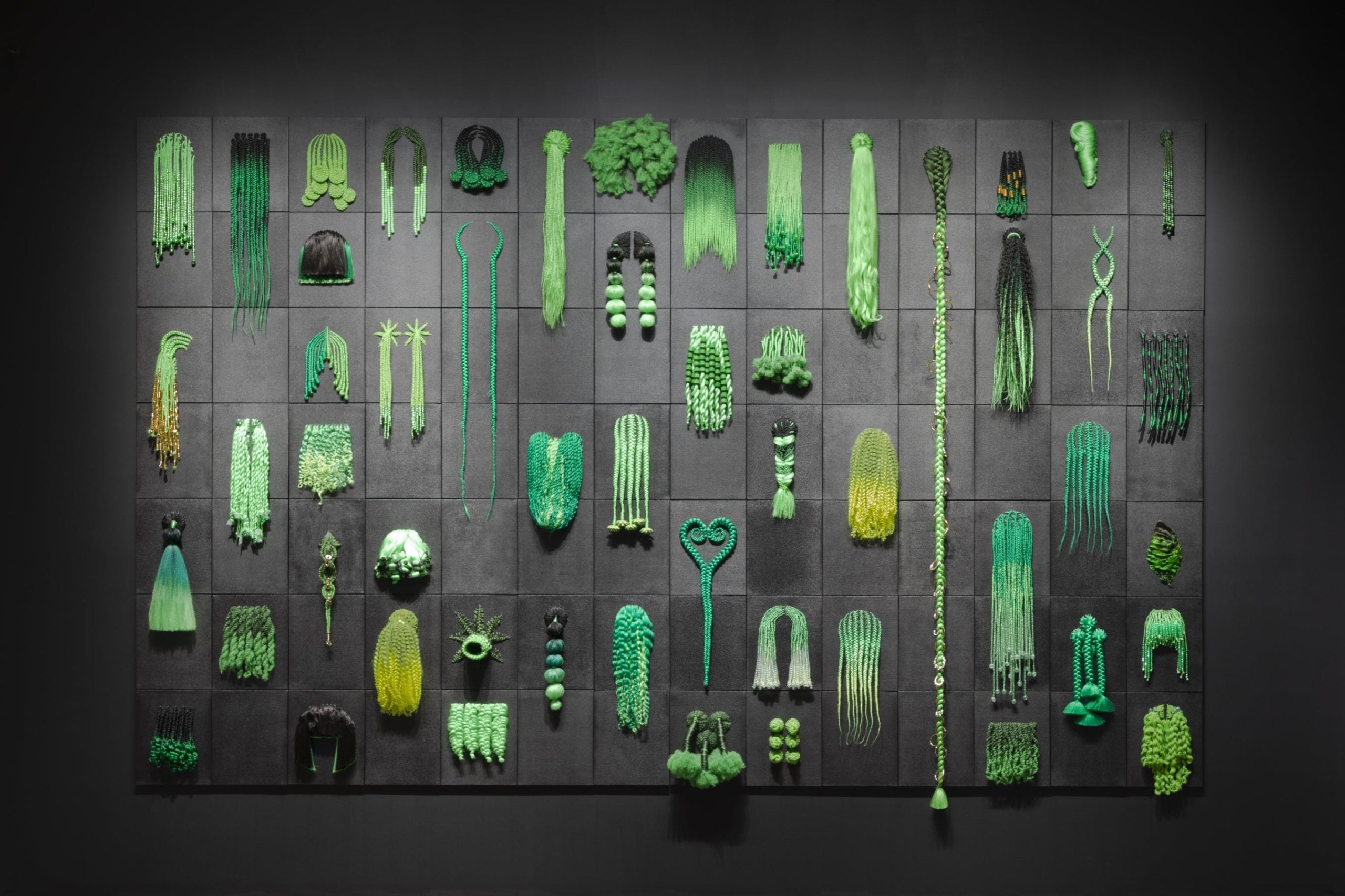
This stunning piece is just one of the exhibit’s artworks celebrating both Detroiters and the ways Black people adorn themselves. The exhibit opened May 5 and runs through May 11, 2025. Its title refers to the streets Seven Mile Road and Livernois Avenue in Detroit, a historically significant area that is home to the city’s Black business and fashion district. It’s also referred to as the Avenue of Fashion. Notably, Massey grew up there.
“7 Mile + Livernois” comprises four gallery rooms, making it the largest show the DIA has organized for a Detroit artist. Massey, who is 42, is also the youngest artist to exhibit in the museum. And the flowers continue: Massey is one of the less than 5 percent of Black women to hold an MFA in metalsmithing in the entire nation.
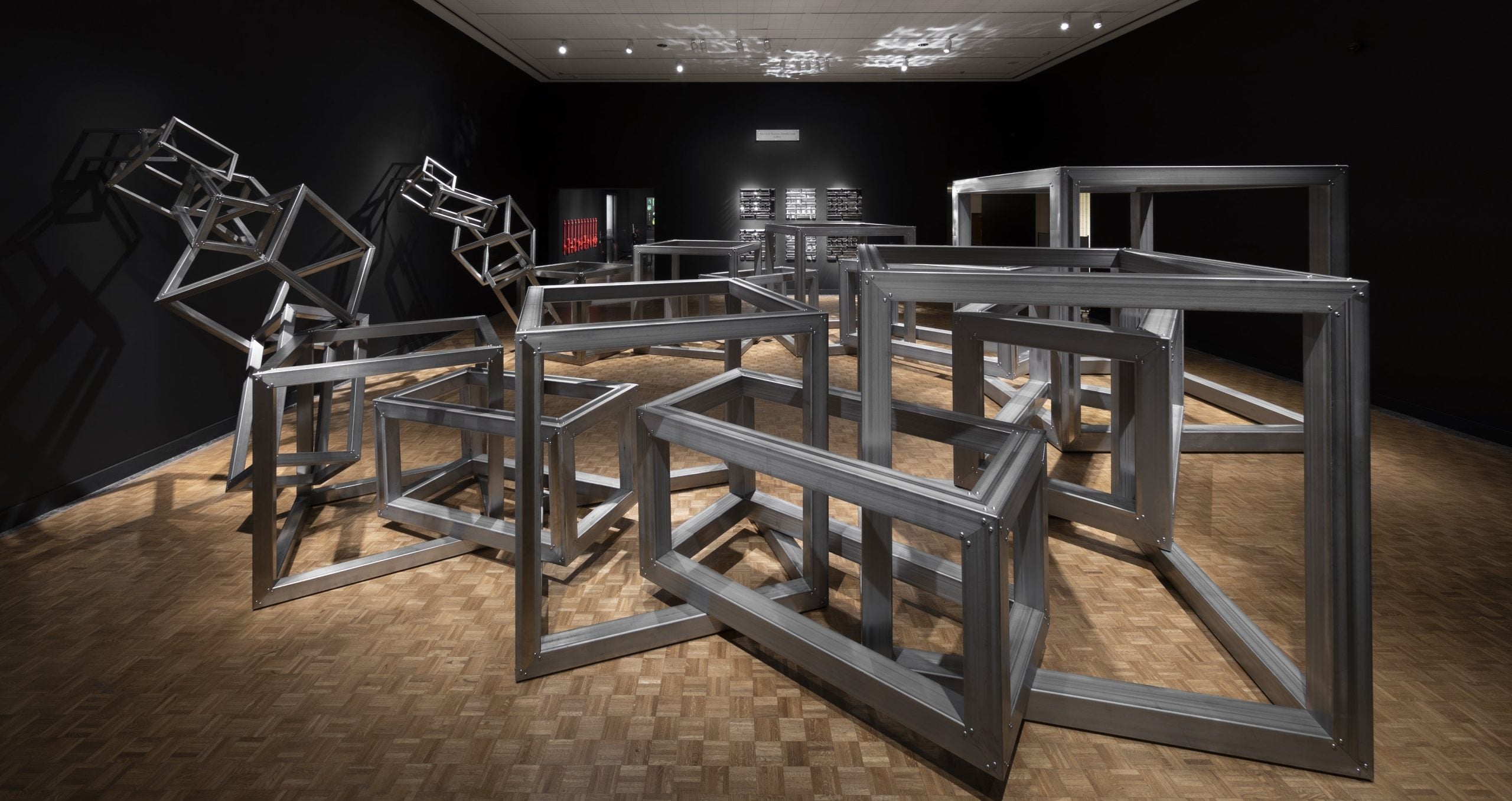
The exhibit’s artworks embody themes of self-representation, status, imagination and family. These larger-than-life sculptures depict many familiar items for Black folks: hair ties with balls on the ends or “bow-bows,” barrettes, hot combs, and hair picks. Rings and necklaces are also emphasized. “7 Mile + Livernois” also features two sculptures from the DIA’s permanent collection that Massey chose to have displayed alongside her work.
ESSENCE spoke with Massey during the exhibit’s opening day about her artwork, her background, and the 18,000-square-foot community art space she’s building in her old neighborhood.
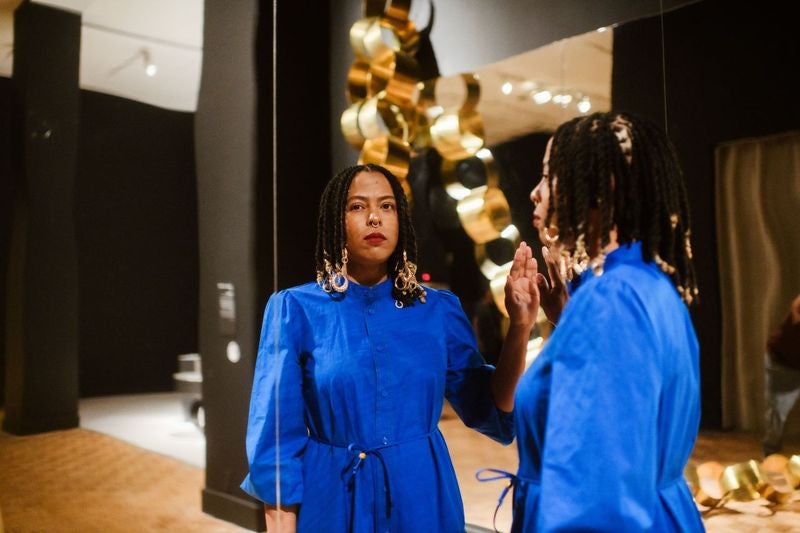
ESSENCE: What made you get into metalsmithing?
Massey: High school is the first introduction I had [to metalsmithing]. I went to Mercy High School in Farmington Hills, [Michigan], an all-girls school, and they had real jewelry classes. We had torches, the ventilation setup, we were being taught how to solder and [skills] like that. When I was pursuing a Bachelor of Science [at Eastern Michigan University], I went back to metalsmithing to break up the monotony because I was tired of learning all these formulas and doing all these things. So, I would take a break and make rings and learn new ways to forge metal.
This exhibit has been said to evoke the essence of Black girlhood and their first jewels. What were yours?
This room, specifically [Massey points to the room featuring the large sculptures of barrettes and hair ties]. We all know what it feels to touch them, to put them in our hair, maybe put them in other people’s hair. A lot of people get to this room, which is a very emotional room for me as well, and they lose it because they remember being a kid and sitting between their mom’s legs and getting their hair braided for school or getting their hair pressed.
For those unfamiliar with Seven Mile Road and Livernois Avenue the area you grew up in, in Detroit, can you talk about the area’s significance?
I chose the title because it’s saying it’s Black. Within this area is the Avenue of Fashion. The whole neighborhood was Black. My neighbors were my “aunts” and “uncles.” I didn’t know I wasn’t related to them. My dad would do block parties and block off the streets–those were my first moments selling jewelry, [and] brooches. It was about dressing; my dad would take me to get custom jewelry made or with him to the jewelers. We used to ride Seven Mile—get dressed up and just ride. So, it’s part of that culture.
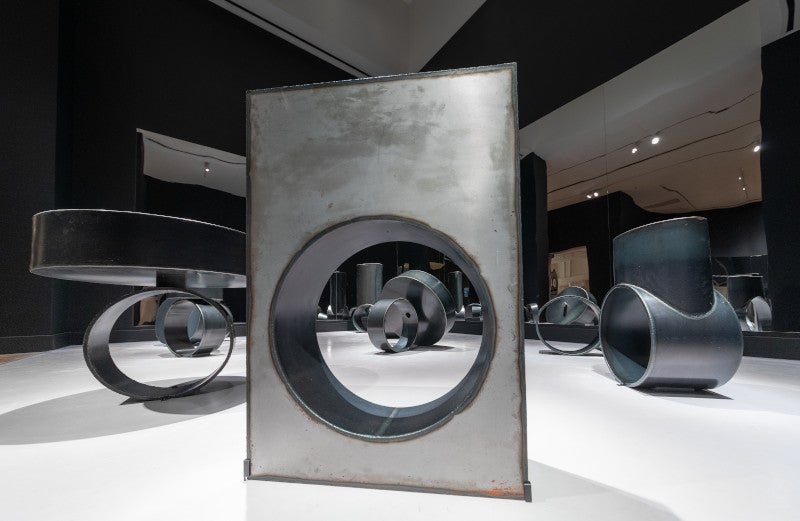
Can you tell me more about the community art space project in the Seven Mile Road and Livernois Avenue area?
Right now, we’re under construction. I would like to create a sculpture park where I would continuously add a piece to that landscape. And food [will be a part of the project too] because there’s not a lot of food [there]. I want to get small bites, grab-and-go, healthy options. I think there needs to be a community space to assemble [where] wellness is a big aspect. What can we have that is successful in our neighborhood? Because massages are on one side of town, healthy options are on another side of town. Why can’t we have all that in one space?
With all your achievements, what do you hope other Black artists take away from them?
Don’t stop. The institutions weren’t made for us, a lot of the time, whether it’s intentional or not, they’re not going to be supportive of us and what we want to do in the systems. So, I want the future artists, future Black sculptors, and metalsmiths, to [keep going] and [being] themselves. And they call it an art practice—you gotta keep practicing, you have to keep moving and doubling down on yourself. I’m always down to chop it up, especially if somebody is interested in the field. When I know there’s other Black metalsmiths or I hear about them, I definitely go and follow them because it is important they know that I see them as well.
The “7 Mile + Livernois” exhibit is open until May 2025. Where do you hope to be by then?
I want to represent the United States [at] the next Venice Biennale. I don’t know if it’s [going to] happen by 2025, but if we want to talk about the next biggest thing that I would like to achieve, that’s what I want to do. But next year, hopefully, the sculpture park will be open. I’ll have more festivals; I put on a festival called WhatUpDoe Fest to support local entrepreneurs, food, art, and music. I’m grinding but I like to give back, too. The hood deserves beautiful things, too.